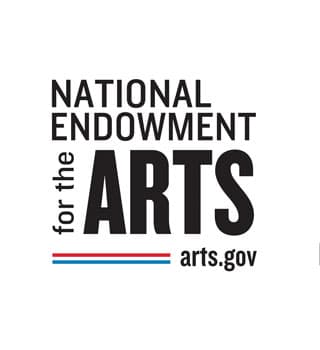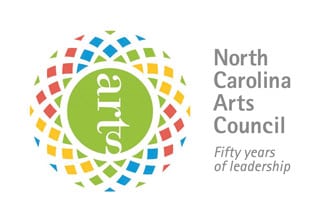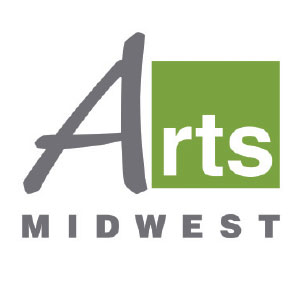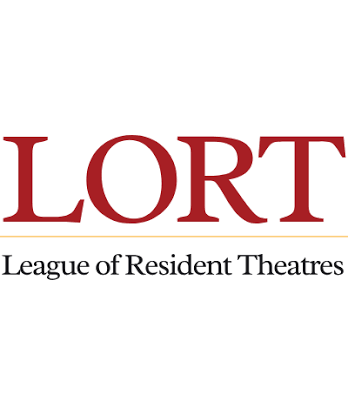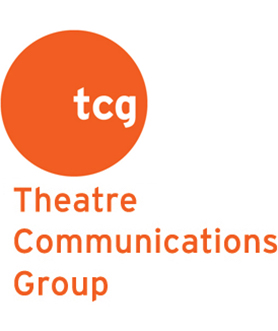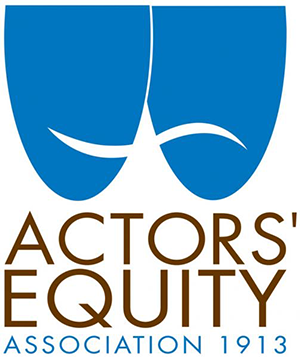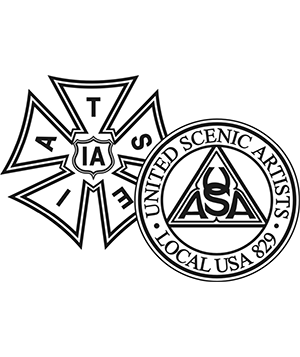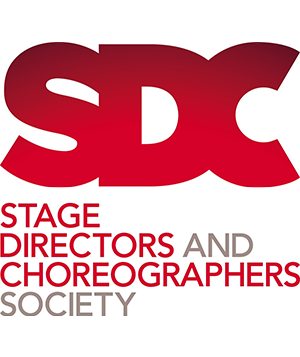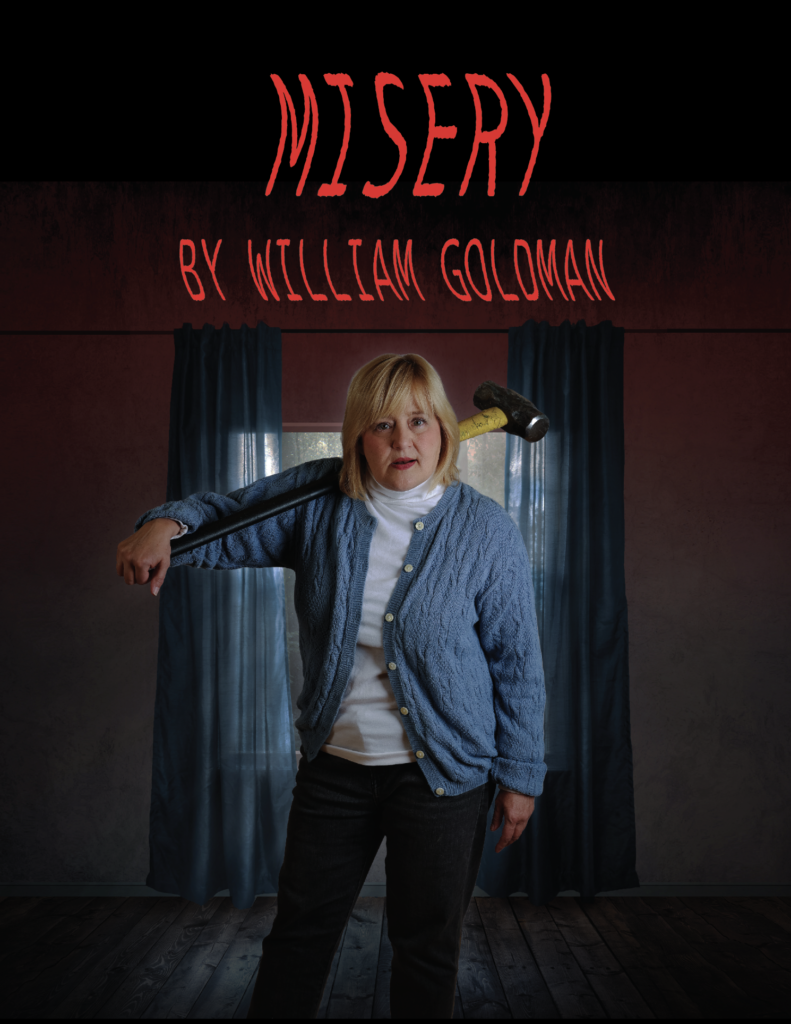
Joan H. Gillings Center for Dramatic Art | playmakersrep.org | 919.962.7529
Table of Contents
Corporate and Foundation Partners
Desktop Computer Version of playbill available here


Greetings!
We are thrilled to present William Goldman’s spine-tingling stage adaptation of Stephen King’s Misery. Much more treat than trick, this smart adaptation (the first of several adaptations we’ll produce this season) is a complex exploration of obsession and passion, a frightening—while frighteningly entertaining—look at the dark side of fandom and freedom.
Bringing this tense cat-and-mouse game to life is no easy task; it requires well-plotted, maniacal talent from all corners of our organization. But have no fear, we have all the right ingredients: a cast to die for, a chillingly, thrilling creative team led by a brilliant director, Jeffrey Meanza, and a world-class, fantastic production staff and crew.
Speaking of the very best ingredients…Misery marks McKay Coble’s last official scenic design as a resident PlayMakers company member. She has created close to ninety designs at PlayMakers over her thirty-plus years as a PRC company and UNC faculty member. From 2005 to 2014 she served as Chair of the Department of Dramatic Art, and from 2011 to 2014 also as Chair of the UNC-CH Faculty. Her influence on and contribution to our theatre’s outstanding work and reputation cannot be overstated. I am [one of ] her number one fans—for life.
Thank YOU for being some of PlayMakers’ number-one fans… but
please, stick to subscriptions and donations.
Happy Halloween!
Warmly,

Vivienne
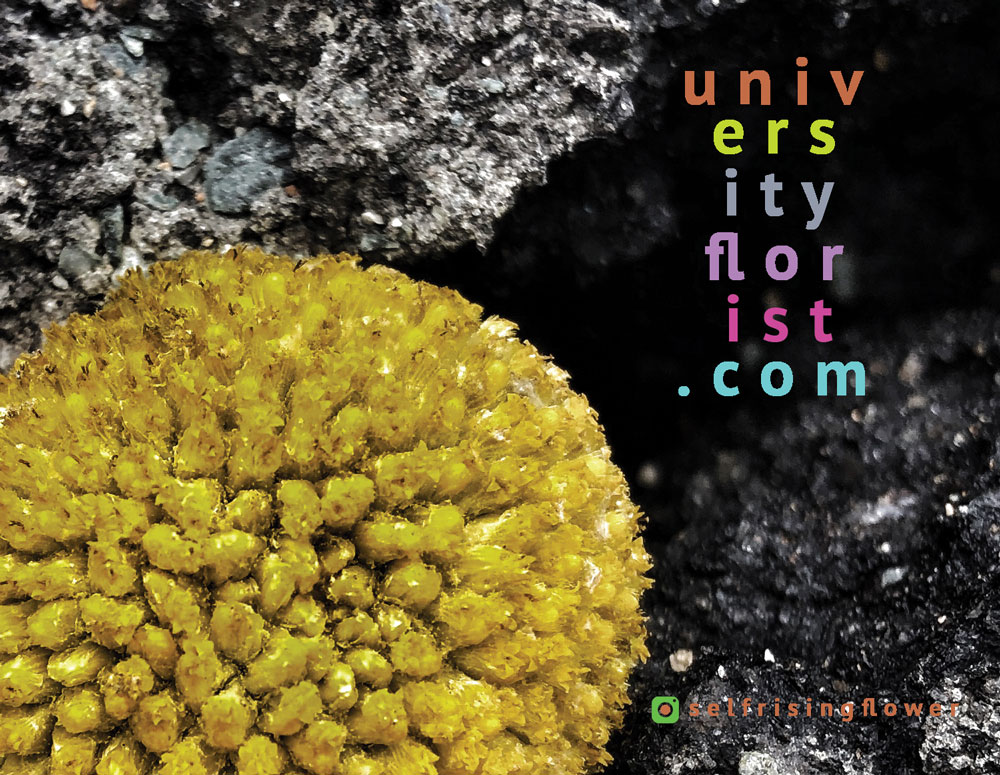
Jump to: Letter from Viv | Support PlayMakers | Program Notes | Who We Are | Title Page | About the Author | Actor Bios | Creative Team Bios | General Information | PlayMakers Staff | Friends of PlayMakers | Corporate and Foundation Partners

Welcome, welcome, welcome!
We are so happy to have you in this space with us. What a fantastic first show we just had, and it finally feels like things are getting back to a ‘new’ normal. Whole areas of our lives went to ground during the pandemic, and like many, I have found that as we emerge and grow, we all hope that this has provided fertile soil for inspiration, allowing germination for seeds waiting under the surface for the right conditions to bloom into their full potential. What better way to explore a new normal than to inhabit a physical space together with living people who expertly give voice to both deeply intimate feelings and expansive philosophical questions.
This season brings us both the classical and the new together, a blend of wonderfully fresh perspectives on established pieces of art and adaptations of great stories retold for the stage and fertile for this moment. I personally cannot wait to see what our own UNC alum, Bekah Brunstetter (and writer for NBC’s ‘This Is Us’,) has conjured up in The Game from the seeds of the oldest Greek comedy, Lysistrata.
When we participate in this theatre, we are joining together in reseeding the past and growing from tradition rather than giving up on it entirely. PlayMakers’ roots run strong in the history of our great University and this state, as it strives to tell contemporary stories of community and foster the idea that expression through art allows us to mature, grow, and reach for the stars.
I believe that there are some things only the arts can provide, and I am profoundly grateful for the opportunity PlayMakers affords us to witness the arts doing what only the arts can do. We hope you will continue to join us on our journey and support all that we do, both on stage and around the community. Share us on social media, bring your friends, donate – we appreciate your support.
Peace,
Jackie Tanner, Chair
PlayMakers Advisory Council
Jackie Tanner, Chair
Betsy Blackwell, Patrick Brennan, Deborah Gerhardt, Susan Gross, Amy Guskiewicz, C. Hawkins, Zach Howell, Lillian Jenks, Duncan Lascelles, Stuart Lascelles, Robert Long, emeritus, Graig Meyer, Julie Morris, Paula Noell, Jodi Patalano, Diane Robertson, Wyndham Robertson, Jennifer Werner, Mike Wiley.
Jump to: Letter from Viv | Support PlayMakers | Program Notes | Who We Are | Title Page | About the Author | Actor Bios | Creative Team Bios | General Information | PlayMakers Staff | Friends of PlayMakers | Corporate and Foundation Partners
About the Author
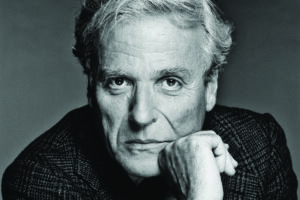
William Goldman was an Academy Award–winning author of screenplays, plays, memoirs, and novels. His first novel, The Temple of Gold (1957), was followed by the script for the Broadway army comedy Blood, Sweat and Stanley Poole (1961). He went on to write the screenplays for many acclaimed films, including Butch Cassidy and the Sundance Kid (1969) and All the President’s Men (1976), for which he won two Academy Awards. He adapted his own novels for the hit movies Marathon Man (1976) and The Princess Bride (1987).

Stephen King was born in Portland, Maine in 1947, the second son of Donald and Nellie Ruth Pillsbury King. He made his first professional short story sale in 1967 to Startling Mystery Stories. In the fall of 1971, he began teaching high school English classes at Hampden Academy, the public high school in Hampden, Maine. Writing in the evenings and on the weekends, he continued to produce short stories and to work on novels. In the spring of 1973, Doubleday & Co., accepted the novel Carrie for publication, providing him the means to leave teaching and write full-time.
He has since published over 50 books and has become one of the world’s most successful writers. King is the recipient of the 2003 National Book Foundation Medal for Distinguished Contribution to the American Letters and the 2014 National Medal of Arts.
Stephen lives in Maine and Florida with his wife, novelist Tabitha King. They are regular contributors to a number of charities including many libraries and have been honored locally for their philanthropic activities.
Jump to: Letter from Viv | Support PlayMakers | Program Notes | Who We Are | Title Page | About the Author | Actor Bios | Creative Team Bios | General Information | PlayMakers Staff | Friends of PlayMakers | Corporate and Foundation Partners
Program Notes
By Mark Perry, Dramaturg
How do you translate a classic movie thriller to the stage? The 1990 film adaptation of Misery starring Kathy Bates and James Caan was a big hit, even scoring a Best Actress Oscar for Bates. It had a dream team of creative contributors, starting with author Stephen King and his 1987 novel, then taken up by screenwriter William Goldman and director Rob Reiner.
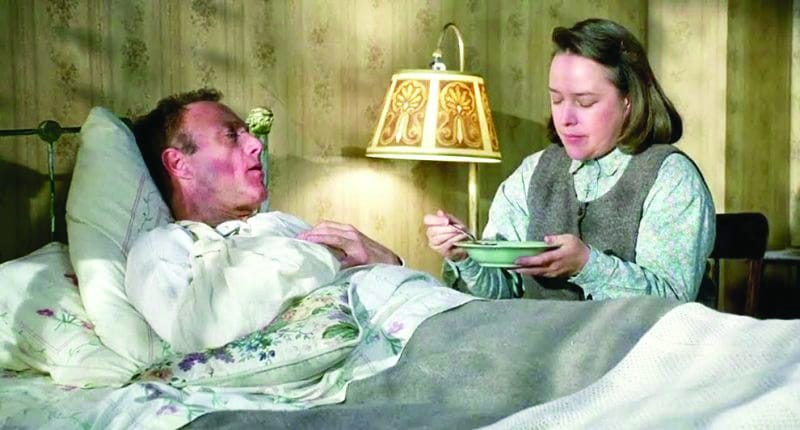
Reiner was on the creative run of his career after directing such films as This is Spinal Tap (1984), Stand by Me (1986), The Princess Bride (1987), and When Harry Met Sally (1989). William Goldman’s scripts for Butch Cassidy and the Sundance Kid (1969) and All The President’s Men (1976) had earned Oscars, while his Marathon Man (1976) and The Princess Bride (1987) had traumatized and charmed their respective audiences.
Stephen King, of course, is an institution. Successful film and TV adaptations of King’s work are too numerous to mention. There are the horror films, beginning with Carrie, and including The Shining, Cujo, Pet Sematary, It, and Children of the Corn. They also include more heartfelt stories such as Shawshank Redemption, Stand by Me, The Green Mile and The Dead Zone. It is hard to imagine film in the 1970s, 1980s and 1990s without his direct contributions or his influence.
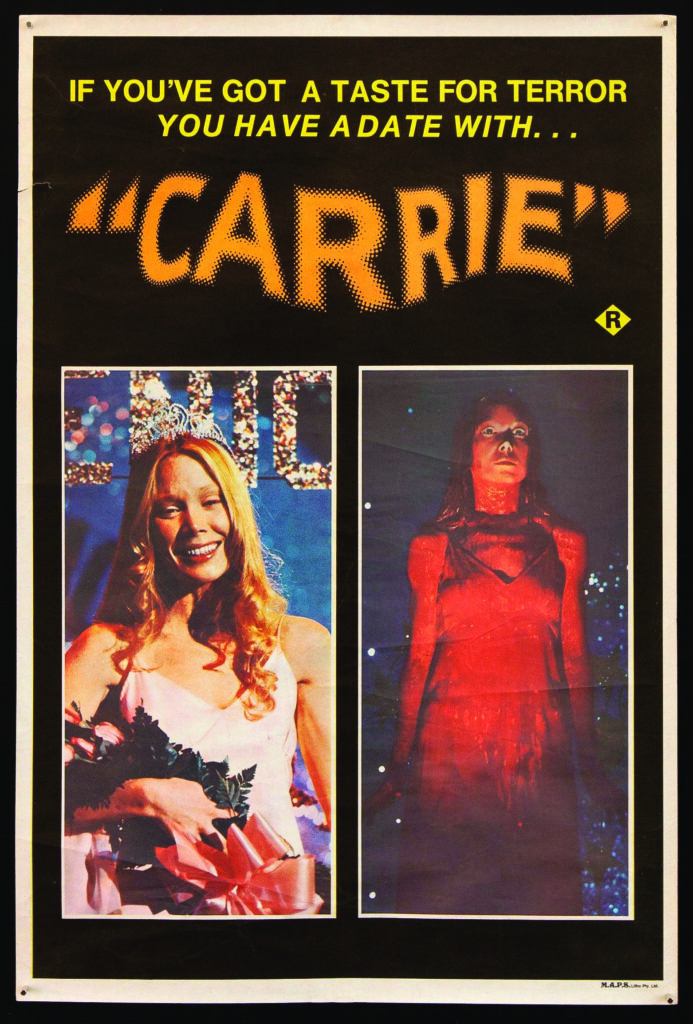
Stephen King’s work has seemed far less translatable to stage. Among his works, Misery stands out in the stage-ready economy of its central struggle and setting. Its focus is on a simple, sustained relationship with a shifting psychological dynamic, and this is prime material for the boards. So, in 2015, Goldman, who was also a playwright, collaborated with director Will Frears on mounting a Broadway stage adaptation.
Fear on Stage vs. Fear on Film
The film industry has become expert at provoking and sustaining our fear, from the haunting malignance of Nosferatu (1922) to the scarified social critique of Get Out (2016). The industry has discovered ready-to-go formulae to make audiences shudder: jump
cuts that shock, camera angles that heighten suspense, soundscapes that creep and pounce. The Horror genre in film is a billion-dollar
industry.
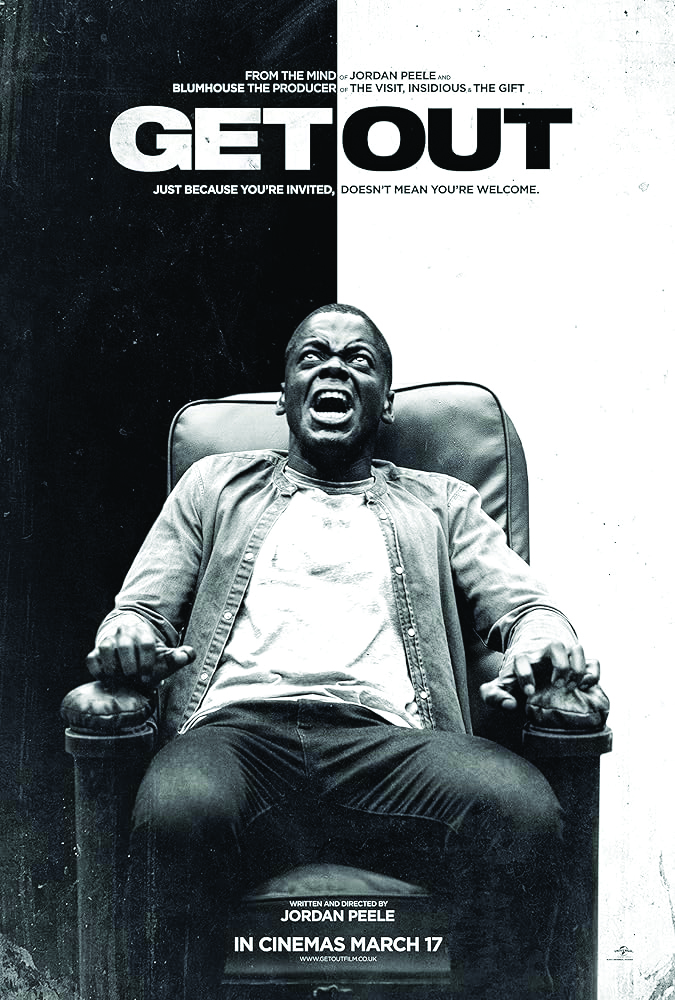
We don’t have anything quite like that in the theatre. The fear engendered in film is largely successful because of the control of the camera and the possibilities of post-production editing. That sort of precision is more difficult for a stage play. In the theatre, as we say, every night is different. And if a company manages a perfectly staged scene of horror, it might be angled to one seating section, while
those in other seats might see the artifice or not see at all. And then, the effect might be diminished by a cough or the shuffling of a program, as someone looks to see who did the special effects.
Violence is another difficulty, and theatre has a checkered history with
portraying violence. The Greeks tended to avoid onstage violence, as it shattered verisimilitude. Instead, they would have offstage screams, followed by the bloody remains being hauled onstage. In doing such, they engaged one of theatre’s central mechanisms—not spectacle or gore, but the ready canvas of audience imagination. In Shakespeare’s day, there was clearly a lot of swordplay, and the actors may have been well-trained in it, but the supernatural eeriness of MacBeth was more about psychology than spectacle. Of course, the Romans used actual violence in their paratheatricals in the coliseums, but one blushes to call that theatre.
Fear is the arousal of the expectation of danger in our imagination. We feel fear when we ourselves or those we love are put in danger, or rather, if we imagine they are. Now film can put us so close to violence that we don’t need to care much about the characters to have our fear triggered. Our senses tell us we are the ones in danger. Some of this effect is possible in the theatre, but if you’re in the back row—well, it’s just not as palpable.
On the other hand, if we care about the characters, then our fear is not conditional on the inundation of our senses. In that case, our empathy is engaged. Fear in theatre is perhaps most successful not when we are forced back into our seats because the danger encroaches on us, but when we lean forward in hope to protect a character we care about who is in danger, of one sort or another.
In Misery, one of the two people present is clearly in danger. The play will work best—as most plays would—if an audience can somehow connect to (and fear for) both characters. This does mean, however, resisting the casual “other-ing” of Annie implied in Goldman’s introductory stage direction: “Annie is like no one else on this or any planet.”
In this respect, Annie Wilkes fits into a long tradition of male writing—dating back at least to Aeschylus—to feature aberrant women who endanger society, generally, and men, in particular. She is a femme fatale—not in high heels and red lipstick, but a farm-raised, middle-aged nurse who loses herself in romance novels and Liberace records.
Seeing Through The Femme Fatale
While film, as a medium, slips easily and often unnoticed, into objectifying its characters, theatre resists this. For one thing, these are actual people in the room with us. For another, theatre is found less in its sequencing of images than in its dialectic volley of character perspective. Theatre works best when one character speaks and we think “Yeah, that’s right,” and then another character speaks and we say, “Oh that’s true too.”
Now, Annie Wilkes is—to use an Annie-ism—a looneybird, but what if the theatre can represent her point of view, at least occasionally, as understandable. Yes, she’s gone off the rails, but at times she can seem tender and—what is key in eliciting our empathy—she can seem vulnerable. Annie may be most relatable when she wavers, hovering on the brink of violence, yet holding herself back. This means there’s a conscience there—however atrophied, and she is not simply a creature catapulting between fangirl adulation and puritanic brutality.
Seeing through the psychosis and suspending disbelief, we hope Annie might escape these off-kilter spirals she is subject to, when this unchecked punitive urge arises in her. We can still be afraid of her and hope her violence will be neutralized, but if we are comfortable with the notion that the only way to resolve Paul’s situation is for him to kill Annie, we may be ingesting a very old brand of theatrical misogyny.
But Isn’t It Just A Horror Story?
One may make the argument that there is no need to empathize with Annie, because this is not a story about sex or gender. Surely, not every story told onstage needs to feature relatable, empathy-worthy characters.
From one angle, King’s story can be seen as a dark satire, rooted in the nightmarish fears of an author—with a long-running success in a highly popular but distinctly low-brow genre, who now feels captive and hobbled (if you will) by the claustrophobic insistences of his rabid readership, here represented by his self-proclaimed “number 1 fan.” Satires specifically work by flattening characters so we can laugh or jeer at the situation, giving us distance to make room for correcting the social ill.
The problem with this explanation is satire requires we remain in a detached frame of mind, keeping us at a level of mindful ridicule towards the characters. Misery works more like a psychological drama. We fear for Paul’s wellbeing, and so our emotions are swaying our perspective.
From another angle, one might say, it’s an allegory of drug addiction—as King has shared in interviews. The framing of the story as such may have been therapeutic for the writer, but “Annie Wilkes is cocaine” is of limited staying value to an audience that will perceive her as a person, and specifically as a woman for 90 minutes in the theatre. And the notion that an aberrant woman must be defeated, if not destroyed, for life to successfully resume its course is the perennial device of the Patriarchy.

Dramaturgy Fellow Series
By Lexi Silva, Dramaturg Associate
As is the case with most dramaturgs (and human beings, generally), I have an impulse to make connections. I think the research that scaffolds those connections is important, even if I have come to a realization that the stage adaptation of Misery should be assessed and supported as a standalone work. Sure, it is necessary to acknowledge that the play occupies space in a greater Misery-verse, but many of my questions are concerned with how modality impacts storytelling. I think that Misery (2012) packs a greater punch on stage than serving as fall fanfare. I think that creating thrills on stage is a huge undertaking dependent on both performance and production to find that perfect balance. I appreciate that Misery, perhaps surprisingly, has prompted a greater dialogue about what theatre can do.
For many, Stephen King is a household name synonymous with the horror and thriller genres. King’s long-standing legacy as a giant in the industry of thrills, however, had humble beginnings. His early and challenging start as a writer began with relentlessly submitting short stories in hopes of being published while teaching high school English to support his family. In the winter of 1972, King got the idea for a short story about a girl with psychokinetic powers inspired by the story of a poltergeist in a suburban home. The resulting novel, Carrie (1974), became his first published work and launched a career spanning 30 widely successful novels and at least 60 film adaptations. Misery (1987), King’s twenty-third published novel, has
been adapted successfully from page to screen, then once more to stage. The sheer number of film adaptations (many of which are highly successful) proves that King’s brand of thrills translates well through the cinematic lens, with Misery being no exception.
Misery, King’s twenty-third published novel, has been adapted successfully from page to screen and stage. William Goldman, screen writer and playwright, adapted King’s novel for the 1990 film adaptation, directed by Rob Reiner and starred James Caan and Kathy Bates, whose portrayal of Annie Wilkes earned her an Academy Award and a Golden Globe Award. Approximately twenty years later, Goldman authored the stage adaptation. Premiering on stage in 2012 and making its way to Broadway in 2016, the stage adaptation of Misery featuring Laurie Metcalf and Bruce Willis was met with tepid reviews from the likes of The New York Times. Fortunately for Goldman, his play was met with more success on Broadway than Carrie: The Musical (1988) which was notorious for being the biggest Broadway flop until Spiderman: Turn Off the Dark (2011).
What happens, though, when horror takes the stage? How does liveness interfere with the suspense inherent to the story and genre? How might the technology of theatre reimagine the magic of film? Or does it have to? And, as ever, how can a team of theatre-makers meet, subvert or build upon the expectations of audiences who are familiar with prior iterations of Misery? These dramaturgical questions continue to pop up and unfold during the rehearsal process. Luckily, I’ve had the pleasure of working with dramaturg Mark Perry whose ideas about the play have both propelled and supported these lines of inquiry. I recommend you read his dramaturgy note [link Mark’s note here]. Spoiler alert: I haven’t answered these questions yet and do not answer them in this note.
When I first learned that PlayMakers had programmed Misery, I asked director Jeff Meanza if he intended to lean into camp or comedy, to which he politely replied “No.” I think my impulse to conflate horror on stage with camp, or comedy, speaks to a held belief that the practical effects of theatre may seem more like tricks than cinematic special effects, thereby undercutting the potential for genuine thrills. There’s also the fact that this show runs through October, clouding my brain with images of haunted houses, Rocky Horror showings and the foreboding apparition of SPIRIT HALLOWEEN stores in desolate strip malls across the country. PRC’s production of Misery, however, is interested (as ever) in creating an honest representation of the story and the characters in it. Mark Perry, Production Dramaturg for Misery, just walked into my office here at the Joan C. Gillings Center for Dramatic Art (honestly great timing, Mark–I was really getting into the weeds) and we briefly spoke about Annie Wilkes’ speculated psychiatric diagnoses, to which he observed that the matter of a diagnosis is not information that is necessarily playable on stage for an actor. He said, “You can only play the objective, so working to settle on a diagnosis becomes passive” (paraphrased). Though specific to the situation, this comment set off a lightbulb: perhaps the challenge of this show, for me, is making the leap from supplying research and asking questions to presenting information that translates into action for the cast and creative team. That is how I can move from a space of dramaturgical thinking to one of dramaturgical doing.
There’s still the question of how we meet, challenge, or even exceed the expectations audiences have for such a familiar story. It seems impossible to separate the image of Kathy Bates from the representation of Annie Wilkes; however, I think an answer to most of the questions outlined above is to truly treat this production as something entirely separate. We can begin answering those questions by treating this production as something truly separate from anything other than the source material. That material remains but is filtered through the uniqueness of the people involved, the medium of the stage, and PlayMakers’ own place in the world.
I am feeling rather like Paul writing his “esoteric, pseudo-autobiographical character study that no one will want to read”. Maybe, this is the Misery’s Child I need to write before I get my Misery’s Return. Hopefully, the journey to my next draft is a little less painful.
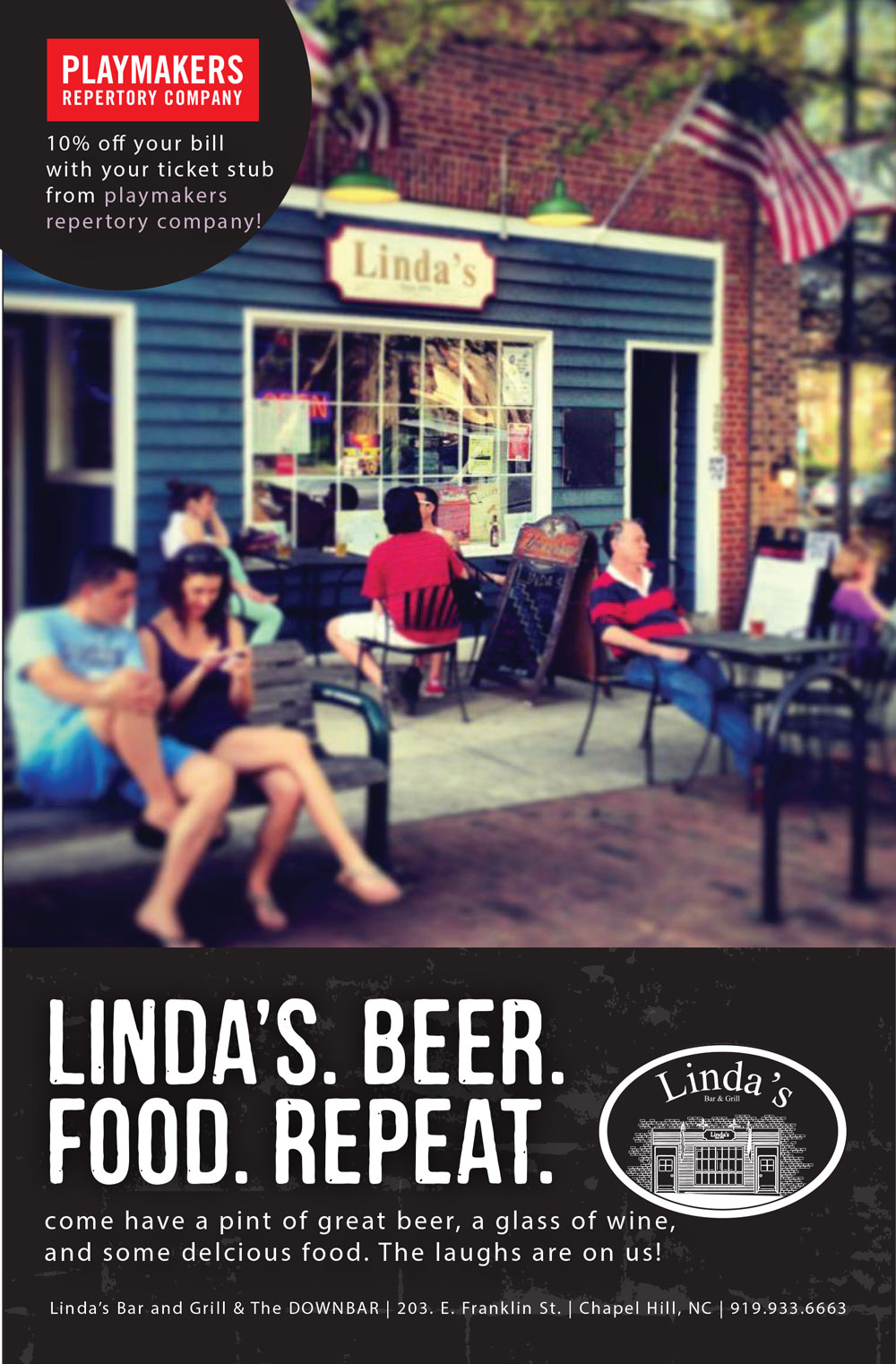
Jump to: Letter from Viv | Support PlayMakers | Program Notes | Who We Are | Title Page | About the Author | Actor Bios | Creative Team Bios | General Information | PlayMakers Staff | Friends of PlayMakers | Corporate and Foundation Partners
Misery
By William Goldman
Based on the novel by Stephen King
Directed by Jeffrey Meanza
Scenic Designer
McKay Coble
Costume Designer
Grier Coleman
Lighting Designer
Tao Wang
Original Music & Sound Designer
Kate Marvin
Fight, Violence, and Special Effects Choreographer
Jeff A.R. Jones
Vocal Coach
Tia James
Dramaturg
Mark Perry
Stage Manager
Sarah Smiley
Assistant Stage Manager
Aspen Blake Jackson
October 11-31, 2023
MISERY is presented by special arrangement with Dramatists Play Service, Inc., New York.
Original Broadway production produced by Warner Bros. Theatre Ventures in association with Castle Rock Entertainment, Liz Glotzer, Mark Kaufman, Martin Shafer, Raymond Wu
World Premiere produced at Bucks County Playhouse, New Hope, PA
(Jed Bernstein, Producing Director)
Special thanks to Stephan Hermanides and Stacy Strebel; Sean and Emily Callot for their contributions to this production.
The video or audio recording of this performance by any means is strictly prohibited.
The Professional Theatre of the Department of Dramatic Art
Kathryn Hunter-Williams, Chair
Vivienne Benesch, Producing Artistic Director
Produced in association with the College of Arts and Sciences
The University of North Carolina at Chapel Hill
Jump to: Letter from Viv | Support PlayMakers | Program Notes | Who We Are | Title Page | About the Author | Actor Bios | Creative Team Bios | General Information | PlayMakers Staff | Friends of PlayMakers | Corporate and Foundation Partners
Actor Bios
Annie Wilkes — Julia Gibson*
Paul Sheldon — Karl Kenzler*
Buster — Adam Valentine*
Stage Managers: Sarah Smiley* Aspen Blake Jackson*
*Appears courtesy of Actors’ Equity Association,
the Union of Professional Actors and Stage Managers in the United States.
Place: Silver Creek, Colorado, 1987
Misery is performed with a 15-minute intermission

Julia Gibson
Annie Wilkes
PlayMakers: Resident company member in her 11th season.
Native Gardens, Yoga Play, Native Son, How I Learned to Drive,
Bewilderness, The Cake, Ragtime, My Fair Lady, She Loves Me,
Twelfth Night, The Crucible, An Enemy of the People, Into the
Woods, Vanya and Sonia and Masha and Spike, Love Alone, Metamorphoses, The Tempest.
Broadway: Stanley, Uncle Vanya, Night Mother. National Tour: The
Exonerated.
Off-Broadway: The Public, Shakespeare in the Park, Manhattan
Theatre Club, The Roundabout, Classic Stage Company, New York TheatreWorkshop, SoHo Rep, Origin Theatre Company, Irish Rep, The Rattlestick, among others.
Regional: The Alley, American Conservatory Theatre, The
Goodman, The Long Wharf, Yale Rep., George Street, The Arden, Milwaukee Rep., Philadelphia Festival Theatre, Dallas Theatre Center, Chautauqua Theatre Company, and elsewhere.
Film/TV: Michael Clayton, Changing Lanes. “Blue Bloods”, “Law & Order”, “Law & Order: Criminal Intent”, “Spin City”, “So Close”, and “One Life to Live”.
Directing includes: Rattlestick, Epic Theatre Company, Gulfshore Playhouse, New London Barn, Portland Stage, Juilliard, and NYU.
Education/Other: Currently co-head of the Professional Actor
Training Program in the Department of Dramatic Art at UNC-Chapel Hill, Fox Fellowship recipient, and 2020 Carolina Women’s Center Faculty Scholar. Narrated over 175 audiobooks.

Karl Kenzler
Paul Sheldon
PlayMakers: Debut.
Broadway: Fiddler on the Roof, You Can’t Take It With You, Mary Poppins, Twelve Angry Men, The Caretaker, Dinner at Eight, The Heiress.
New York Includes: Twilight: Los Angeles (Signature); All Our Children (Sheen Center); Usual Girls (Roundabout); Three Wise Guys, Beyond Therapy (TACT); Clinton: The Musical! (NYMF); Peter & The Starcatcher (NYTW).
TV Includes: “How To Fix A Drug Scandal”, “FBI: Most Wanted”, “The
Blacklist”, “Blue Bloods”, “Madam Secretary”, “Suits”, “Mister Robot”,
“House of Cards” (recurring), “Law & Order: SVU” (recurring), “Person of Interest”, “Made in Jersey”, “The Good Wife”, “Law & Order”, “Darwin: The Series”. Film: Irresistible ( Jon Stewart, dir.).
Regional Includes: Bucks County Playhouse, Denizen Theatre, Williamstown, Barrington Stage, Guthrie, Shakespeare Theater, Old Globe, and Chautauqua Theater Company.
Training: University of Evansville (BFA), NYU Grad Acting (MFA).
Awards: Lucille Lortel Award winner, Helen Hayes Award nominee.
KarlKenzler.com

Adam Valentine
Buster
PlayMakers: Company member in their third year of UNC’s Professional Actor Training Program. Clyde’s, The Legend of Georgia McBride, Hamlet, Emma, A Wrinkle in Time, The Skin of our Teeth. The Tempest (PlayMakers Mobile). Den Of Thieves, Gloria (PlayMakers/UNC Ground Floor).
Regional: Small Mouth Sounds (Cadence Theatre); The Tempest, The Heir Apparent (Richmond Shakespeare); The Curious Incident… (Virginia Rep); Hand To God, LEVEL 4, Heathers: The Musical (TheatreLAB); Maple & Vine, Stupid Kid (Firehouse Theatre).
Education/Awards: Virginia Commonwealth University, B.A. 2021 RTCC Ernie McClintock Best Ensemble Acting for Small Mouth Sounds.

Jump to: Letter from Viv | Support PlayMakers | Program Notes | Who We Are | Title Page | About the Author | Actor Bios | Creative Team Bios | General Information | PlayMakers Staff | Friends of PlayMakers | Corporate and Foundation Partners

Jeffrey Meanza
Director
See PlayMakers Leadership page.
McKay Coble
Scenic Designer
PlayMakers: Company member for over 30 years. Hamlet, The Skin of Our Teeth, Everybody, Bewilderness, Sherwood, Leaving Eden, Dot, My Fair Lady, Peter and the Starcatcher, An Enemy of the People, The Tempest / Metamorphoses, It’s a Wonderful Life, Red, Noises Off, The Parchman Hour, Big River, Nicholas Nickleby, Amadeus, The Little Prince, The Illusion, Cyrano, Not About Heroes,
Playboy of the Western World, A Streetcar Named Desire, The Nutcracker, and many others.
Broadway: Production Coordinator, Barbara Matera, Ltd.; La
Cage Aux Folles, Big River, Sunday in the Park with George, Singin’ in the Rain, Merlin, Private Lives.
Regional: Alley Theatre, Clarence Brown Theatre,
Guthrie Theater, Hartford Stage, Utah Shakespearean Festival, Virginia Stage Company.
Film: “The Cotton Club,” “Indiana Jones and the Temple of Doom,” “Ghostbusters,” “Silkwood,” “Places in the Heart.” Member of United Scenic Artists. Local 829; NYC.
Grier Coleman
Costume Designer
PlayMakers: Julius Ceasar, Life of Galileo, Dot, The Crucible, Disgraced.
Regional: Shows at Miami New Drama, Weston Playhouse, Virginia
Theatre Festival, Shakespeare on the Sound, Virginia Stage Company, and Yale Repertory Theater.
Educational Credits include: sixteen seasons at The Juilliard School designing Drama, Dance, and Opera; NYU, Columbia, The New School, Washington College, Auburn University. BFA: University of NC-Chapel Hill; MFA: Yale School of Drama. United Scenic Artist 829. www.griercoleman.com
Tao Wang
Lighting Designer
PlayMakers: Resident company member in his first season.
Regional: UrbanArias Keegan Theatre, Hattiloo Theatre – Black Repertory Theatre, Taft Theatre, Corbett Theatre, MainStage Musical Theatre and Dance Company, Stauss Theatre. Events/ TV/ Shows: “Nanjing, Nanjing,” The Universal Beijing Resort, Beijing Olympics Opening Ceremony 2008 and Special Olympics World Games in Shanghai Opening Ceremony, Turandot in Paris, Beijing TV Virtual Reality Interactive Showroom, USITT 2019 National Conference.
Teaching: Assistant Professor and David and Rebecca Pardue Fellow, serving as a Media and Lighting Designer in the Department of Dramatic Arts at UNC Chapel Hill. Proud member of United Scenic Artists Local 829; NYC and USITT. www.wangtman.com/
Kate Marvin
Sound Designer & Composer
PlayMakers: The Legend of Georgia McBride, A Wrinkle in Time.
Off-Broadway/New York: Merry Me (New York Theatre Workshop); Big Trip (Krymov Lab, LaMama); The Best We Could (MTC); Wolf Play (MCC/Soho Rep); Heartland (59E59); Fidelio (Heartbeat Opera); Blood Meal (Theater in Quarantine); Wives (Playwrights Horizons); Fruiting Bodies (Ma-Yi); Chimpanzee (HERE Arts Center); Porto (WP Theater).
Regional: McCarter Theatre Center, Berkeley Rep, Two River Theater, Northern Stage, Geva Theatre Center, Guthrie Theater, Alliance Theater, Mark Taper Forum, among others. Film: The Memory Trade (Handmade Puppet Dreams); Out of Office (NYS Puppet Festival); White Flags (AC Pictures).
Education/Other: Kate is an associate artist with Target Margin Theater. MFA, Yale School of Drama
Jeff A.R. Jones
Fight, Violence, and Special Effects Choreographer
PlayMakers: Clyde’s, Hamlet, Native Gardens, A Wrinkle in Time, Stick Fly, The Skin of Our Teeth, Leaving Eden.
Regional: Beauty Queen of Lenane (Virginia Stage); Romeo & Juliet, Macbeth, Don Quixote, Dracula (Carolina Ballet); Carmen, Cold Mountain (NCOpera); Otello, Pagliacci, Romeo et Juliette (Virginia Opera); West Side Story (Illinois Opera). Nearly 200 credits including favorites Macbeth, King Lear, Titus Andronicus, Pericles, Henry IV, Part 1, The Rover, She Kills Monsters, Carrie, Marian: The True Tale of Robin Hood, Sweeney Todd, Ragtime, Spring Awakening, Wild Party, Mr. Burns, a great big woolly mammoth thawing from the ice, Vinegar Tom, Cry Havoc, Hookman.
Other: Certified Teacher, Fight Director, and Theatrical Firearms Instructor with the Society of American Fight Directors, Certified Intimacy Director with IDC.
Owner/instructor: Collaborative Combat Movement Arts (weekly classes).
Head Facilitator: Triangle Intimacy Lab. @jarjones Collaborative Combat Movement Arts @stagecombatacademync
Tia James
Vocal Coach
PlayMakers: Company member for four seasons. Actor: Clyde’s, Hamlet, Blues for an Alabama Sky, A Wrinkle in Time, Julius Caesar, Native Son. Vocal coaching includes They Do Not Know Harlem, The Legend of Georgia McBride, Stick Fly, Ragtime, How I Learned to Drive, Life of Galileo, Bewilderness, She Loves Me, Skeleton Crew, Sherwood, Jump, Your Healing is Killing Me. Director: How I Learned What I Learned, As You Like It, Macbeth (PlayMakers Mobile), and Constellations (PlayMakers Ground Floor).
Broadway: The Merchant of Venice.
Off-Broadway / New York: The Winter’s Tale, The Merchant of Venice (Shakespeare in the Park).
Regional: Much Ado About Nothing (Commonwealth Shakespeare Company); Richard III (Allentown Shakespeare); Loving and Loving (Stella Adler Studios); Much Ado About Nothing (Two River Theatre); Civilization [All You Can Eat] (Woolly Mammoth Theater).
Television: “Nurse Jackie,” “Treme.”
Teaching /Coaching / Directing: UNC-Chapel Hill, NYU Graduate Acting, NYU Dance, Atlantic Acting School, Montclair University.
Education/Awards: MFA NYU Tisch Graduate Acting Program, BFA Virginia Commonwealth University; Miller Voice Method Teacher Certification. Recipient of the 2014 NYU Graduate Acting Diversity Mentorship Scholarship, 2003 Kennedy Center American College Theatre Festival, Irene Ryan Acting Scholarship winner for Best Actor; 2019 Michael Chekhov/Zelda Fichandler Scholarship.
Mark Perry
Dramaturg
PlayMakers: Company member for 15 seasons. Emma, Yoga Play,
Everybody, How I Learned to Drive, Jump, The Cake, De Profundis, The Crucible, Trouble in Mind, Metamorphoses, Surviving Twin, A Raisin in the Sun, An Iliad, Noises Off, The Parchman Hour, Shipwrecked! An Entertainment, The Little Prince. Mark teaches play analysis and playwriting in the Department of Dramatic Art. His plays The Will of Bernard Boynton and A New Dress for Mona have been produced in our Kenan Theatre, and both have been published by Drama Circle. In spring 2024, Mark will be directing Kenan Theatre Company’s production of Anton Chekhov’s The Seagull, after teaching a course on the play this fall.
Education/Other: MFA, Playwright’s Workshop, University of
Iowa. Former recipient of NC Arts Council Literature Fellowship for
Playwriting.
Sarah Smiley
Stage Manager
Sarah returns for the 2023/24 season, her 12th since 2005. She has worked with theatres, theme parks, and road houses in eight states and the U.K., including Tampa Playmakers, freeFall Theatre Company, Virginia Stage Company, Busch Gardens Tampa, the Alliance Theatre Company, 7 Stages, Gulfshore Playhouse, Shadowland Theatre, the Brooklyn Academy of Music, the Sherman Theatre in Cardiff, Wales, and the West Yorkshire Playhouse in Leeds. She is a member of Actors’ Equity Association, and has been active in USITT and the Stage Managers’ Association. She received her M.F.A. from the University of Iowa.
Aspen Blake Jackson
Assistant Stage Manager
PlayMakers: They Do Not Know Harlem, Native Gardens. The Drowsy Chaperone, The 25th Annual Putnam County Spelling Bee (Summer Youth Conservatory).
Aspen graduated in May of 2019 with a BA in Vocal Performance and Dramatic Arts from UNC-Chapel Hill. During her undergraduate career, she was a stage manager for shows such as Cendrillon, Dido and Aeneas, and The Pillowman. After graduating, Aspen completed an internship with the Walt Disney World Company and she worked as a production assistant for Playisney World Company and she worked as a production assistant for PlayMakers Repertory Company during their 19/20 and 21/22 seasons.
Jump to: Letter from Viv | Support PlayMakers | Program Notes | Who We Are | Title Page | About the Author | Actor Bios | Creative Team Bios | General Information | PlayMakers Staff | Friends of PlayMakers | Corporate and Foundation Partners
In Memoriam
Milly S. Barranger
1937 – 2023
An author, educator and producer, longterm leader and collaborator Milly Barranger died on August 21st in New York with her daughter Heather and wife, Liz Woodman, by her side. Milly was the Alumni Distinguished Professor Emerita of Dramatic Art from the University of North Carolina at Chapel Hill, where she served concurrently as Chairwoman of the Department of Dramatic Art and Producing Director of PlayMakers Repertory Company during her storied tenure from 1982-1999.
Milly was a titan and a pioneer. The impact of what she made happen here at PlayMakers Repertory Company – and the unique relationship she cultivated between a professional theatre and the Department of Dramatic Art – cannot be overstated. She was a force and neither PlayMakers nor the Department of Dramatic Art would be what they are today without her vision, bravery and determination.
A Note from Producing Artistic Director Vivienne Benesch and Chair of the Department of Dramatic Art Kathryn Hunter-Williams.
Jump to: Letter from Viv | Support PlayMakers | Program Notes | Who We Are | Title Page | About the Author | Actor Bios | Creative Team Bios | General Information | PlayMakers Staff | Friends of PlayMakers | Corporate and Foundation Partners
PlayMakers Leadership
Vivienne Benesch
Producing Artistic Director
Vivienne is in her eighth full season as a company member and Producing Artistic Director at PlayMakers, where she has helmed productions of Hamlet, The Skin of Our Teeth, The Storyteller, Dairyland, Life of Galileo, Leaving Eden, The May Queen, Three Sisters, Love Alone, RED and In The Next Room. In her eight seasons with the theatre, she is particularly proud to have produced 12 world premieres and launched PlayMakers Mobile, a touring production aimed at reaching underserved audiences around the Triangle.
For 12 seasons, she served as Artistic Director of the renowned Chautauqua Theater Company and Conservatory, presiding over the company’s transformation into one of the best summer theatres and most competitive summer training programs in the country. Vivienne directed both the world premiere of Noah Haidle’s Birthday Candles for Detroit Public Theatre and, in 2022, its Broadway production starring Debra Messing. She has also directed for the Folger Shakespeare Theatre (Helen Hayes nomination for best direction 2019), The Shakespeare Theatre of New Jersey, Trinity Repertory Company, NY Stage & Film, and Red Bull Theatre, among others. As an actress, Vivienne has worked on and off-Broadway, in film and television, at many of the country’s most celebrated theatres, and received an Obie Award for her performance in Lee Blessing’s Going to St. Ives. Vivienne is a graduate of Brown University and NYU’s Graduate Acting Program.
As an educator, she has directed for and served on the faculty of some of the nation’s foremost actor training programs, including The Juilliard School, UNC-Chapel Hill’s Professional Actor Training Program, Brown/Trinity Rep MFA Program, and at her alma mater, NYU’s Graduate Acting Program. She is the 2017 recipient of the Zelda Fichandler Award given by the Stage Directors and Choreographers Foundation.
Jeffrey Meanza
Associate Artistic Director
An actor, director and educator, Jeffrey Meanza has spent the last 15
years working at two of the country’s most celebrated regional theatres, overseeing the artistic, educational and community engagement efforts of the organizations. As a member of PlayMakers’ resident acting company, he has appeared in Hamlet, Angels in America, Into the Woods, Lisa Kron’s Well, Amadeus, Assassins, and The Life and Adventures of Nicholas Nickleby, among others, and directed The Cake and The Legend of Georgia McBride.
From 2015 to 2021, he served as the Guthrie Theater’s associate artistic director, overseeing the theater’s education and community engagement initiatives, the literary team, casting, and the theater’s professional training programs, as well as helping to guide the work on the Guthrie’s three stages. During his tenure, Meanza managed the expansion of educational programming to serve over 35,000 students annually, including creating an artist residency program that put full-time teaching artists in high school classrooms throughout Minnesota. In addition, under his leadership, the Guthrie piloted a new Fellowship program that offers paid training opportunities for emerging leaders to experience work at one of the nation’s leading regional theaters. In 2021, Meanza returned to PlayMakers Repertory Company as Associate Artistic Director, overseeing the theater’s artistic, educational, and engagement operations. He holds an M.F.A in Acting from the Professional Actor Training Program at UNC-Chapel Hill and a B.A. in Theater and Performance Studies from the University of California, Berkeley.
Michael Rolleri
Production Manager
Michael is in his 37th season with PlayMakers Repertory Company. He has been Technical Director, Project Manager, Exhibition Technician, and Lighting Designer for industrial shows in the Southeast region, as well as lead carpenter for films, the U.S. Olympic Festival, and scenic studios. He has also been a rigger in the Southeast region and has served on the executive board and as President of IATSE Local 417. Michael is a 30 year Gold Pin member of IATSE. An active member of United States Institute For Theatre Technology (USITT), he is a three-time winner at USITT’s Tech Expo. He is a full Professor/Head of the Technical Production Program at UNC-Chapel Hill and was an instructor at High Point University and Tufts University.
Education: MFA in Design and Technical Production, UNC-Greensboro.
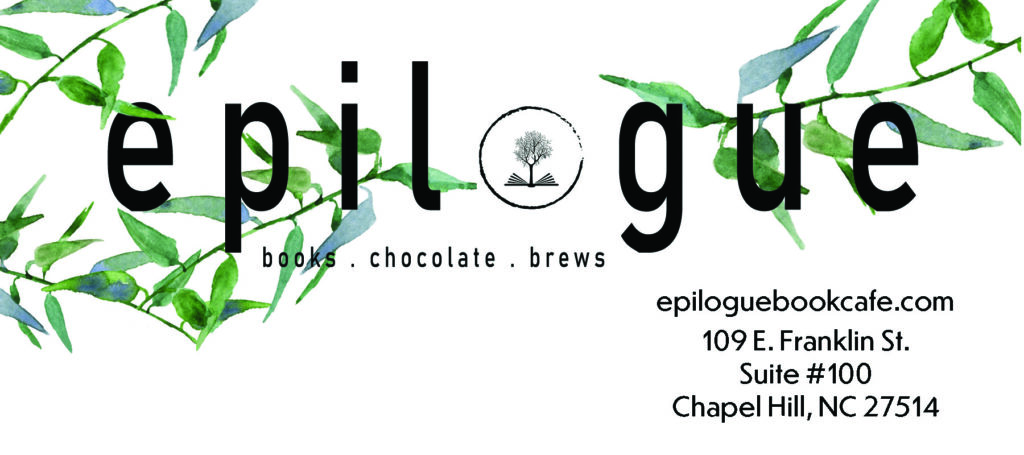
Jump to: Letter from Viv | Support PlayMakers | Program Notes | Who We Are | Title Page | About the Author | Actor Bios | Creative Team Bios | General Information | PlayMakers Staff | Friends of PlayMakers | Corporate and Foundation Partners

PlayMakers is…
“One of America’s Best Regional Theatres”
(American Theatre Magazine), PlayMakers Repertory Company is North Carolina’s premier professional theatre company, proudly in residence on the dynamic campus of the University of North Carolina-Chapel Hill. The professional company was founded in 1976, growing out of a storied 100-year tradition of playmaking at Carolina.
At the very heart of the PlayMakers experience is one of the nation’s last remaining resident theatre companies, made up of accomplished performers, directors, designers, artisans, and technicians, and supported by exceptional graduate students in UNC’s Department of Dramatic Art. Our company works side by side with guest artists from all over the world and our alumni include Pulitzer Prize, Tony®, Emmy®, and Grammy Award® winners.
Creating Tomorrow’s Classics, Today
Producing Artistic Director Vivienne Benesch is continuing PlayMakers’ tradition of producing vibrantly reimagined classics, large-scale musical theatre, and significant contemporary work, but is also broadening the company’s reach to become a home for new play development and a true hub of social and civic discourse in the region. Her first seven seasons have already given life to twelve important new American plays.
A Hub of Engagement
PlayMakers seeks to provoke thought, stimulate discussion, and push the boundaries of the theatrical form in everything we do. Whether through our intimate @PLAY series, our mainstage offerings or our virtual line-up, we look for opportunities for direct, dynamic engagement between audiences, artists, and thinkers. We also offer a host of unique engagement opportunities designed to enrich our audience’s experience of the live arts.
Theatre for the People
PlayMakers Mobile is an initiative that seeks to contribute positively to the civic and social life of our region by taking world-class theatre out of our building and into the community. We create a streamlined production of a play and take it to schools, transitional housing facilities, and long-term treatment facilities around the Greater Triangle area. And best of all, it’s all free of charge.
Passing the Torch
PlayMakers’ award-winning Summer Youth Conservatory is the only professionally supported training program of its kind in the region. The Theatre Quest program provides camps to area middle school and high school students, while the Theatre Intensive and TheatreTech programs allow Triangle high schoolers to apprentice directly with professional directors, choreographers, musical directors, and technicians, culminating in a professional quality production on the PlayMakers mainstage for the whole community to enjoy.
Eliminating Barriers
With a commitment to eliminating barriers for attendance, PlayMakers offers All Access performances for our patrons living with disabilities. We also offer accessible $20 tickets for all performances and ticket prices are reduced to just $10 for UNC students. For more information, please contact prcboxoffice@unc.edu.
Our Mission
PlayMakers Repertory Company is North Carolina’s premier professional theatre company, proudly in residence on the dynamic campus of the University of North Carolina at Chapel Hill. Our mission is to produce relevant, courageous work that tells stories from and for a multiplicity of perspectives. We believe that theatre can have a transformational impact on individuals and entire communities, and we are committed to the journey of becoming an anti-racist organization whose work is accessible to all. Inextricably linked to UNC’s Department of Dramatic Art, PlayMakers is devoted to nurturing and training future generations of artists and audiences.
Our Vision
Provoke
Represent
Create
Antiracism Accountability Statement
At the heart of PlayMakers Repertory Company’s mission is the belief that theatre has the power to transform individuals and entire communities. There is no more aspirational or urgent a use of that power than working to dismantle the systems of oppression, white supremacy, and racism that pervade American life and consume the American Theatre. PlayMakers continues to assess and evaluate our own practices in order to embed equitable, antiracist policies into strategic planning, our mission, and our operations.
PlayMakers Repertory Company, and those of us who work here, commit to the following:
- To work intentionally to create an antiracist culture in our company.
- To continually educate ourselves on the ways in which we can combat racism locally and nationally as we move to create an inclusive, diverse, and equitable sense of belonging for every one of our constituents.
- To demonstrate our values through action in our policies, practices, and procedures.
Land Acknowledgment
We acknowledge that the Center for Dramatic Art is located on the unceded lands of one or more of Abiayala’s (the Americas’) original sovereign nations, the name(s) of which have not yet been affirmed. The unjust acquisition of these Indigenous lands came about through a history of racism, violence, dispossession, displacement, and erasure of cultures by settlers as part of the larger, land-centered project of settler colonialism.
As we look to the future, may we build upon the memories and goodwill of all who walked and labored here before us with truth, integrity, and honor. Learn more: UNC American Indian Center americanindiancenter.unc.edu/

Jump to: Letter from Viv | Support PlayMakers | Program Notes | Who We Are | Title Page | About the Author | Actor Bios | Creative Team Bios | Who We Are | General Information | PlayMakers Staff | Friends of PlayMakers | Corporate and Foundation Partners

PlayMakers Repertory Company
Joan H. Gillings Center for Dramatic Art
CB# 3235, UNC-Chapel Hill
Chapel Hill, NC 27599-3235
Box Office: 919.962.7529
Website: www.playmakersrep.org
Clyde’s is 1 Hour, 45 minutes long with no intermission
THE 23/24 SEASON
SEP 6–24, 2023: Clyde’s by Lynn Nottage, directed by Melissa Maxwell
OCT 11–31, 2023: Stephen King’s Misery adapted William Goldman, directed by Jeffrey Meanza
NOV 15–DEC 3, 2023: Much Ado About Nothing by William Shakespeare, directed by Lavina Jadhwani
JAN 31–FEB 18, 2024: Fat Ham by James Ijames, directed by Jade King Carroll
MAR 6–24, 2024: Agatha Christie’s Murder on the Orient Express adapted by Ken Ludwig, directed by Tracy Bersley
APR 10–28, 2024: The Game by Bekah Brunstetter, directed by Vivienne Benesch
Special Events:
DEC 16–17, 2023: Charles Dickens’ A Christmas Carol adapted by William Leachman, directed by Michael Perlman (More info soon)
JAN 11–16, 2024: Every Brilliant Thing by Duncan Macmillan with Jonny Donahoe, directed by Tom Quaintence (More info soon)
Health and Safety
- In accordance with recent changes to state and University safety guidelines, PlayMakers will no longer require proof of COVID vaccination or negative PCR test for our productions.
- Additionally, mask-wearing is encouraged but not required.
Box Office Hours
Tuesday-Friday, 12:00 p.m. – 5:00 p.m. and 90 minutes before each performance.
Use of Cell Phones and Other Electronics
Texting and using cell phones, laptops, smart watches, and other devices light- or sound-emitting devices are strictly prohibited during the performance. Please turn all electronic devices to silent, theatre mode, or off during the show.
Cameras or Recording Devices
Taking photographs or videotaping inside the theatre is strictly prohibited during performances. However, before the show, during intermission, and after the show, you are invited to take and share your photos of the stage and scenery.
Parking
There are several paid and free parking options available near PlayMakers. We recommend arriving 30 minutes before the show so that you have time to park and pay (Monday-Thursday evenings only) and find your seat. For more information and an interactive map of nearby parking options, please visit www.playmakersrep.org/parking
Policy on Young Children
As a courtesy to our patrons, it is the policy of PlayMakers not to admit children under the age of 5. All of our shows have content ratings for each production (for example: Rated PG-13). If you are considering bringing your child, please refer to website or contact our Box Office for further information. All patrons, regardless of age, must have a ticket.
Headsets for Hearing Impaired Patrons
Our theatres are equipped with sound systems that amplify the sound from the stage. Patrons who wish to use the system may obtain headsets on a first-come, first-served basis from the coat check. Headsets must be returned immediately after the performance.
Late Seating and Leaving Your Seat During the Performance
To minimize disruptions to the actors and other patrons, late seating will be provided at the discretion of the house manager at an appropriate break in the action on stage. Patrons who need to be seated late must be escorted by house staff to seats at the rear entrance of the auditorium, which entails climbing a flight of stairs. Patrons can take their regular seat at intermission.
Keith DaSILVA, Private Wealth Financial Advisor and 2023 Forbes Best-in-State Wealth Advisors are proud to support PlayMakers Repertory Company
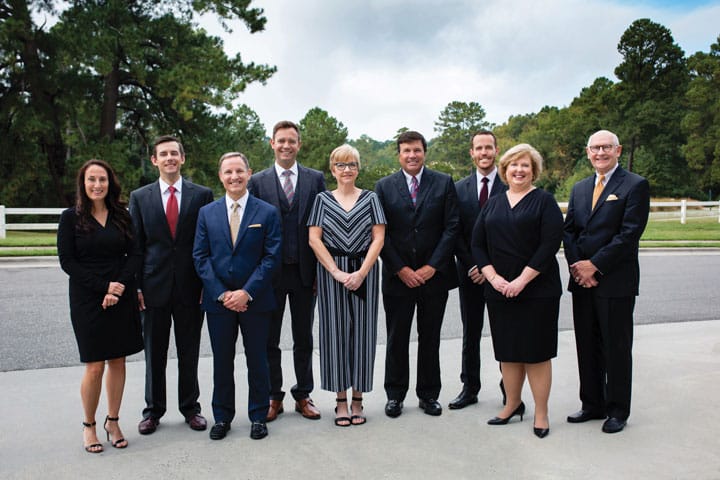
Jump to: Letter from Viv | Support PlayMakers | Program Notes | Who We Are | Title Page | About the Author | Actor Bios | Creative Team Bios | Who We Are | General Information | PlayMakers Staff | Friends of PlayMakers | Corporate and Foundation Partners

PlayMakers’ 2023/24 Season is Made Possible in Part by Grants from
Foundation Support
National Endowment for the Arts, North Carolina Arts Council, The Shubert Foundation, Fidelity Foundation, Truist Foundation, The Educational Foundation of America
Additional Funding for Guest Artists is Provided by
Robert Boyer and Margaret Boyer Fund, Louise Lamont Fund, Emeriti Professors Charles and Shirley Weiss Fund
Producing Council
Residence Inn Chapel Hill, Larry’s Coffee
Corporate Council
Vimala’s Curryblossom Cafe, Knott Private Wealth Management Group at Wells Fargo Advisors
Associates
Linda’s Bar and Grill, Glasshalfull, Infinium Spirits
PlayMakers Repertory Company is a program of the Department of
Dramatic Art, The College of Arts and Sciences, and The University of North Carolina at Chapel Hill. The North Carolina Arts Council, a division of the Department of Cultural Resources, recognizes PlayMakers as a professional theatre organization and provides grant assistance to this organization from funds appropriated by the North Carolina General Assembly and the National Endowment for the Arts. PlayMakers is a beneficiary of the Elizabeth Price Kenan Endowment and the Lillian Hughes Prince Endowment.
PlayMakers Repertory Company is a Member of Theatre Communications Group (TCG), the national organization for the American theatre.
This Theatre operates under an agreement between the League Of Resident Theatres (LORT) and Actors’ Equity Association, the Union of Professional Actors and Stage Managers in the United States.
The scenic, costume, lighting, and sound designers in LORT Theatres are represented by United Scenic Artists, Local USA-829 of the IATSE.
The Director and Choreographer are members of the Stage Directors and Choreographers Society, a national theatrical labor union.
Jump to: Letter from Viv | Support PlayMakers | Program Notes | Who We Are | Title Page | About the Author | Actor Bios | Creative Team Bios | Who We Are | General Information | PlayMakers Staff | Friends of PlayMakers | Corporate and Foundation Partners

Administration
Vivienne Benesch, Producing Artistic Director
Artistic
Jeff Aguiar, Director of Engagement
Tracy Bersley, Movement Coach/Choreographer
Chelsea James, Producing Associate
Tia James, Vocal Coach
Gregory Kable, Dramaturg
Jacqueline E. Lawton, Dramaturg
Jeffrey Meanza, Associate Artistic Director
Mark Perry, Dramaturg
Gwendolyn Schwinke, Vocal Coach
Lexi Silva, Dramaturgy Fellow
Sarah Tackett, Administrative Operations Associate
Adam Versényi, Dramaturg
Administration
Matara Hitchcock, Company & Events Manager
Kate Jones, General Manager
Lisa Geeslin, Accountant
Maura Murphy, Director of Operations
Erica Bass, Alexis R. Steele-Kubuanu, Dani Elliott, Ella Hawn,
Sage Howard, Sarajane Carty, Nathaniel Kareis, Work Studies
Development
Kymberly Burkhead-Dalton, Dir. of Development
Kyle Kostenko, Assistant Director of Annual Giving
Lenore Field, Gala Coordinator
Marketing & Audience Services
Hannah LaMarlowe, Marketing Specialist
Thomas Porter, Box Office Manager
Rosalie Preston, Associate Director of Marketing
Lauren Van Hemert, Marketing Consultant
Kori Yelverton, Audience Services Associate
Jenna Zottoli, Audience Services Associate
Lucy Albanil-Rangel, Michelle Seucan, Marketing Work Studies
Ava Lytle, Cora Willis, Student House Managers
Ayriana Agard, Swetha Anand, Albert Carlson, Lynlee Collins,
Kali Dao, Tygia Drewhowell, Evan Jeppson, Gali Jones-Valdez,
Lindsey Kanipe, Micah Kennel, Lex Lankford, Alicia Norman,
Leah Page, Morgan Perry, Asher Pierce, Sophie Taylor, Maggie
Thornton, Izzy Twiss, Ava Wells, Ava West, August Williams,
Nicholas Williams, Box Office and Front of House Work Studies
Department of Dramatic Art
Kathryn Hunter-Williams, Chair and Associate Professor
Faculty
Milly Barranger, Professor Emerita
Vivienne Benesch, Professor of the Practice
Tracy Bersley, Associate Professor
Pamela Bond, Assistant Professor
Jan Chambers, Professor
McKay Coble, Professor
Jeffrey Blair Cornell, Associate Chair, Teaching Prof.
Ray Dooley, Professor Emeritus
Samuel Ray Gates, Assistant Professor
Julia Gibson, Associate Professor
David Hammond, Professor Emeritus
Letitia James, Assistant Professor
Gregory Kable, Teaching Professor
Jacqueline E. Lawton, Associate Professor
Matthew Mallard, Teaching Assistant Professor
Adam Maxfield, Teaching Professor
Triffin Morris, Professor of the Practice
David Navalinsky, Professor
Bobbi Owen, Distinguished Professor Emerita
Laura Pates, Teaching Assistant Professor
Kathy Perkins, Professor Emerita
Mark Perry, Teaching Associate Professor
Rachel E. Pollock, Teaching Assistant Professor
Michael Rolleri, Professor
Gwendolyn Schwinke, Assistant Professor
Lexi Silva, Dramaturgy Fellow
Aubrey Snowden, Teaching Assistant Professor
Craig Turner, Professor Emeritus
Adam Versényi, Professor
Tao Wang, Assistant Professor
Staff
Lucas Branch, KTC Technical Director
Victoria Danielik, Program Assistant
Lisa Geeslin, Accounting Technician
Taylor McDaniel, Student Services Manager
Karen Rolleri, Business Coordinator
Jamie Strickland, University Manager
Production
Michael Rolleri, Production Manager
Costumes
Amy Evans, Costume Shop Manager
Marissa Lupkas, Wardrobe Supervisor
Matthew Mallard, Assistant Costume Director
Triffin Morris, Costume Director
Rachel Pollock, Costume Craftsperson
Costume Production Graduate Students:
Matty Blatt, Jocelyn Chatman, Jillian Gregory, Emma
Holyst, Jessica Land, Zachary Morrison, Sally Rath
Madeline Gibson, Clara “Hock” Hockenberry,
Undergraduate Assistants
Bao-Nhi Vu, Costume Lab Assistant
Katherine Craig, Costume Department Assistant
Natasha Harm, Wardrobe Assistant
Georgia Wood, Costume Stock Assistant
Arcadia Hiton, Costume Clerical Assistant
Amanda Tenzlinger, Costar Vintage Archivist
Lighting
Benjamin Bosch, Electrics Supervisor
Nick Rodgers, Production Swing for Lighting & Sound
Xiuping Xiong, Lighting Assistant
Alex Mitropoulos, Work Study
Props
Lauren Reinhartsen, Properties Supervisor
Emma Madison, Props Artisan
Rebecca Xhajanka, Props Artisan
Marissa Romano, Props Undergraduate Assistant
Lydia McRoy, Cami Crocker, Evan Wilker, Work Studies
Scenic
Brandon “Bruce” Hearrell, Production Carpenter
Adam Maxfield, Technical Director
Laura Pates, Technical Director
Diane Zimmerman, Scenic Charge Artist
Technical Production Graduate Students:
Rachel Van Namen, Joel Ernst, Benjamin Fink, Roark
Kaitlin Mcguire, Kee Meh, Chyna Wiles, Veta “Koa” Torres,
Scenic Painting Work Studies
Beatrice Sangangbayan, Connor Gould, Heather Robinson,
Jake Docherty, Yessenia Estrada-Zerhoudi, Carpentry Work
Studies
Sound
David Bost, Sound Supervisor
Andrew Fleming, Sound Undergraduate Assistant
Nubia Orellana, Jace Rea, Word Studies
Stage Management
Aspen Jackson, Stage Manager
Sarah Smiley, Stage Manager
Zoe Lord, Production Assistant
PlayMakers’ Resident Acting Company
Jeffrey Blair Cornell
Samuel Ray Gates
Julia Gibson
Kathryn Hunter-Williams
Tia James
Gwendolyn Schwinke
Professional Actor Training Program:
Reez Bailey, Hayley Cartee, Matthew Donahue, Elizabeth Dye, Heinley Gaspard, Jadah Johnson, Jamar Jones, Nate John Mark, Saleemah Sharpe, Sanjana Taskar, Adam Valentine, Megwe Wapimewah
For this Production of “Misery”
Alice Knight, Assistant Director
Saleemah Sharpe, Assistant Director
Lexi Silva, Dramaturgy Fellow and Associate Dramaturg
Adam Maxfield, Production Technical Director
Laura Pates, Production Assistant Technical Director
Brandon “Bruce” Hearrell, Shop Lead
Amy Evans, Assistant to the Costume Designer
Jocelyn Chatman, Draper
Jillian Gregory, Jessica Land, First Hands
Zachary Morrison, Sally Rath, Stitchers
Matty Blatt, Production Costume Shop Manager
Emma Holyst, Production Crafts Supervisor
Jump to: Letter from Viv | Support PlayMakers | Program Notes | Who We Are | Title Page | About the Author | Actor Bios | Creative Team Bios | Who We Are | General Information | PlayMakers Staff | Friends of PlayMakers | Corporate and Foundation Partners
THERE HAS NEVER BEEN A MORE IMPORTANT TIME TO SUPPORT PLAYMAKERS AND THE ARTS

PlayMakers Repertory Company is a nonprofit theatre. We rely on the generosity of our community to continue delivering the Broadway-quality theatre you love. If you believe in the transformative power of theatre as much as we do, please consider making a tax-deductible donation to help theatre thrive.
You can help support and sustain all our work, both on stage and off, by making a tax-deductible gift which enables us to:
- Bring innovative, entertaining, and relevant theatre to the Triangle
- Serve students across the state through our award-winning educational programs
- Engage with our audiences through artist and community conversations
- Remain flexible, safe, and better prepared for the future
Every gift, big or small, makes a huge difference!
Ways to Give
Online
Phone or Email
Kymberly Burkhead-Dalton, Director of Development
kbdalton@email.unc.edu
919.962.4846
Send your check to:
Kymberly Burkhead-Dalton
PlayMakers Repertory Company Development Department
Joan H. Gillings Center for Dramatic Art
CB 3235
Chapel Hill, NC 27599-3235
PlayMakers is grateful to the members of the Friends of PlayMakers for their generous support. For more information about how to join this dynamic group of supporters, call the Director of Development Kymberly Burkhead-Dalton at 919.962.4846 or visit us at playmakersrep.org.
Friends of PlayMakers
Director’s Circle ($10,000+)
Anonymous
Susan Arrington
Betsy Blackwell and John Watson Jr. *
Munroe and Becky Cobey
Farley Fisher Charitable Gift Trust
Fidelity Charitable Gift Fund
David G. Frey ~
Joanne and Peter Garrett
Joan Gillings ~
The Charles Goren and Hazen Family
Foundation, Trustees Tom and Lisa Hazen
The Estate of Linda K. Griffin
Susan and Dustin Gross*
Garrett Hall and Zachary Howell*
T. Chandler and Monie Hardwick
Brian Hargrove and David Hyde Pierce
Mrs. Frank H. Kenan ~
Thomas S. Kenan III *
Paula Noell and Palmer Page*
Wyndham Robertson *
Coleman and Carol Ross
Schwab Charitable
Shubert Foundation
Ken Smith
Vanguard Charitable Endowment Program
Alan H. Weinhouse
Angel ($5,000–9,999)
Anonymous
Patrick Brennan and Lillian Jenks*
Linda and Cliff Butler*
Jan and Stephen Capps
Thomas and Holly Carr
Keith DaSilva of the Knott Private Wealth
Management Group of Wells Fargo Advisors*
The Educational Foundation of America
Mr. and Mrs. Matt Hapgood
Sumeetha and Tanner Hock
Kim Kwok
Prentice Foundation
John Powell*
Raymond James Charitable Endowment
Fund
Rivers Agency, LLC*
David and Jenny Routh
Jackie Tanner*
Jennifer Werner-Cannizzaro and Thomas
Cannizzaro
Ford and Allison Worthy
Jim and Bonnie Yankaskas
Investor ($2,500–4,999)
Richard and Deirdre Arnold ^
Andrew and Katherine Asaro ^
Vivienne Benesch
Charities Aid Foundation of America
Evan and Erin Gwyn
Susan E. Hartley
Stacy and Chris Hovey
Susan J. Kelly
Knack Technologies
Duncan and Stuart Lascelles
Nick and Amy Penwarden
Suzanne and Charles Plambeck
Samyr Qureshi
Dr. and Mrs. Edward Smithwick
Roger and Marlene Werner
Louise and Derek Winstanly
Katie Woodbury
Page to Stage ($1,500–2,499)
David and Judy Adamson
Steve Benezra ^
Dr. Stephen Shaw Birdsall
Ed and Eleanor Burke ^
Cindy and Thomas Cook
Dr. Steven Dalton and Mrs. Kymberly
Burkhead-Dalton
The Rich and Tracy Harris Fund of Triangle
Community Foundation
Carol Hazard and Winston Liao
David J. Howell
Hugon Karwowski and Joanna Karwowska ^
Dr. Moyra Kileff and Mr. Brian Kileff
Dr. Catherine Kuhn and Glenn Tortorici
Mark & Bette Morris Family Foundation
Mark and Julie Morris
Paul and Linda Naylor
Bettina Patterson
RR Donnelley
Carole L. Shelby
Dr. William L. Stewart
The Rev. Wendy R. and W. Riley Waugh
Michael Weil and Peggy Link-Weil
Jenny and Julian Wiles
Partner ($1,000–1,499)
Anonymous (4)
Michael and Marie Andreasen
Jeremy Arkin and Marian Fragola
Dane Barnes
Anna and Amir Barzin
Dr. Stanley Warren Black, III
Peggy Britt
Liz Carroll Interiors
Joan Clendenin
Bill Cobb and Gail Perry
Dr. Carrie Donley and W.P. Gale ^
Cauveh Erami
Dr. and Mrs. John P. Evans
Rachelle Feldman and Paul Raczynski
John and Diane Formy-Duval
Julia and William Grumbles
Jim and Debra Lampley
Lauren G. Leve and Jonathan Fleener
Jack Knight and Margaret Brown
Katie Kosma
Shirley and Tom Kunkel
Douglas MacLean and Susan Wolf
Elaine Mangrum and Michael Freedberg
Marconi Hoban Tell Fund
John and Alice May
Holly and Ross McKinney
David E. Price
Jean and Joseph Ritok
David B. Sontag
Karen Sisson and Andrew Levine
Scott Taylor
Triangle Community Foundation
Paul and Sally Wright
David and Heather Yeowell
Backer ($500–999)
Anonymous (3)
Elisabeth Allore, in memory of John Allore
Pete and Hannah Andrews
Dr. Thomas C. Apostle and Sharon E. Lawrence-Apostle
Deborah Barrett and Charles Kurzman
Adam C. Beck ^
John W. Becton and Nancy B. Tannenbaum
Shula and Stephen Bernard
Patricia Beyle
Ann and John Campbell
Philip and Linda Carl
Sam and Michelle Crittenden
Anne and Alexander Dusek
Bob and Connie Eby
Randi Emerman
Thorsten A. Fjellstedt
Mrs. Linda Whitham Folda and Dr. Jaroslav
Alison Friedman
James P. Gogan ^
Dr. and Mrs. Robert S. Greenwood
Elizabeth Grey
Janet and D. Scott Guthmiller
Toby and Cheryl Harrell
C. Hawkins ^
Mr. and Mrs. David L. Henson
Don and Kay Hobart
Michael Maness and Lois Knauff
Anand and Sandhya Lagoo
K.A. and Carol Lawrence
Nelda and Douglas Lay
Dr. and Mrs. Morton D. Malkin
Ed and Connie McCraw
Amy McEntee
Laurie E. McNeil and Patrick W. Wallace
Jeanne and Herbert Miller
Dr. James C. and Dr. Susan D. Moeser
Betsy and Jefferson Newton
Linda W. Norris
Pat and Mary Norris Oglesby
Lois P. Oliver
David and Mary Ollila
Sarah Owens
Ariana Pancaldo and Michael Salemi
Louis and Jodi Patalano
Mark and Eugenea Pollock
Jodi and Glenn Preminger
Elizabeth Raft
Vikram and Susan Rao
Lucy and Sidney Smith
Dr. William W. Smith and Brenda W.
Kirby
Tim and Judy Taft
T. Rowe Price Program for Charitable
Giving
U. S. Charitable Gift Trust
Wegmans Chapel Hill
^ Sustainers Club Member
* PlayMakers Special Event Supporter
~ Deceased
This list is current as of September 1, 2023. If your name is listed incorrectly or not at all, please contact PlayMakers Development Office at 919.962.4846. We will ensure you are recognized for your
thoughtful support.
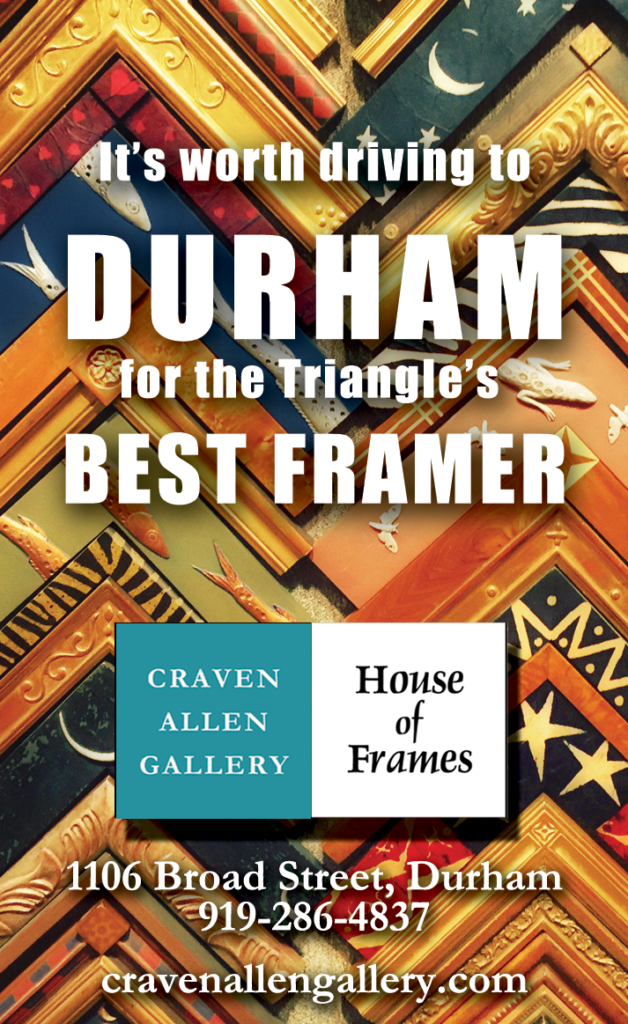
Jump to: Letter from Viv | Support PlayMakers | Program Notes | Who We Are | Title Page | About the Author | Actor Bios | Creative Team Bios | Who We Are | General Information | PlayMakers Staff | Friends of PlayMakers | Corporate and Foundation Partners

